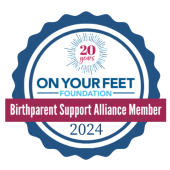
Understanding the Timeline of Adoption
The legal framework surrounding adoption is complex and varies by state. In the United States, adoptive parents must comply with federal and state laws, which means that the duration of the process can be influenced by the specific legal requirements in their location. For instance, under Illinois law, a birth parent cannot sign a legal consent or surrender allowing their child to be adopted until at least 72 hours after birth. Other states may have different timelines, such as 48 hours or even 30 days. These state laws must be observed in order to ensure the validity of the adoption, but they can also add time to the overall process.
The type of adoption chosen significantly affects how long the adoption process takes. There are several types of adoptions, including:
- Domestic Infant Adoption: This involves adopting a newborn or an infant from within the United States. The process can take anywhere from a few months to several years, depending on the availability of birth parents and the specific circumstances of each case.
- Foster Care Adoption: Adopting a child from foster care often has a different timeline. Children are already in the state’s custody, which can sometimes expedite the process. However, it can still take 6 to 18 months or longer, depending on whether the goal for the child’s case is still to return home or if the parental rights have been terminated, among other factors.
- International Adoption: This can be one of the lengthiest processes due to the need to comply with the laws of both the United States and the child’s country of origin. It often involves extensive paperwork, travel, and waiting periods, which can extend the process to several years.
If the adoption involves moving a child from one state to another, the Interstate Compact on the Placement of Children (ICPC) comes into play. This federal statute ensures that children placed across state lines receive proper care and protection. The ICPC process includes additional paperwork and approvals, which can lengthen the overall timeline. It’s essential for adoptive parents to be aware of these requirements and prepare accordingly.
Understanding How Long the Adoption Process Takes
Understanding the factors that determine how long the adoption process takes can help you set realistic expectations and prepare you for the journey ahead. Each adoption story is unique, and shaped by various legal, emotional, and practical elements. By being informed and prepared, prospective adoptive parents can navigate the process with confidence, ready to welcome a new member into their family.
If you’re considering adoption and want to understand more about how long the adoption process takes, we invite you to visit our website at Adoption Center for Family Building. Our team of compassionate professionals are here to guide you through every step of the journey. For personalized assistance, please contact us.





